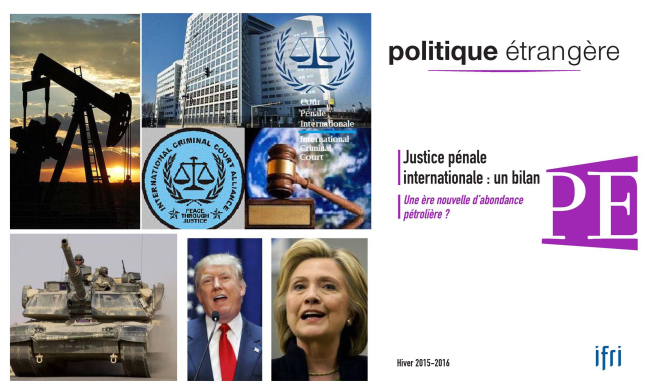3260 publications
Eurasia in Russian Foreign Policy: Interests, Opportunities and Constraints
The Eurasian axis of Russian foreign policy has been given several impetuses over the last two years. The most important of these has been the sharp deterioration in relations with the West against the backdrop of the Ukraine crisis.
The German Debate on Country’s Security: Different Discourse, Same Paradigm
Recent debates in Germany about the future of the country’s security and foreign policy have aroused interest abroad, especially in France.
From Financial Diplomacy to Geopolitics of Finance
The financial system has become too complex to be controlled at state level.
War’s Indirection or the Return of the Limited War
Over the last few years both the United States and Russia seem to have changed their conception of how to deploy force.
Assessing the Achievements of International Criminal Justice / A New Era of Oil Abundance?
Born from the ashes of two world wars, the concept of international criminal justice took nearly half a century to become anchored in institutions and legal concepts that are independent of specific conflicts. The International Criminal Tribunal for the former Yugoslavia, that for Rwanda, and the creation of the International Criminal Court, among others, bear witness to the real progress made during the 1990s. This issue of Politique étrangère offers a series of articles that shed light on these achievements and their limits.
International Criminal Justice at 70: Between the Iron and Golden Ages
The modern principle of international criminal justice goes back to Nuremberg and its highly specific historical context. The 1990s marks a decade of renaissance, for former Yugoslavia and Rwanda in particular.
The ICTY Story: A Clear Failure?
Established to hold trials for crimes committed during the Yugoslav wars in the 1990s, the International Criminal Tribunal for the former Yugoslavia (ICTY) has vacillated between its punitive purpose and writing the history of this period.
Rwanda: How to Judge Genocide?
The extraordinary nature of the 1994 massacres in Rwanda gave rise to the need for “complete justice”, operating judicial processes on several levels.






